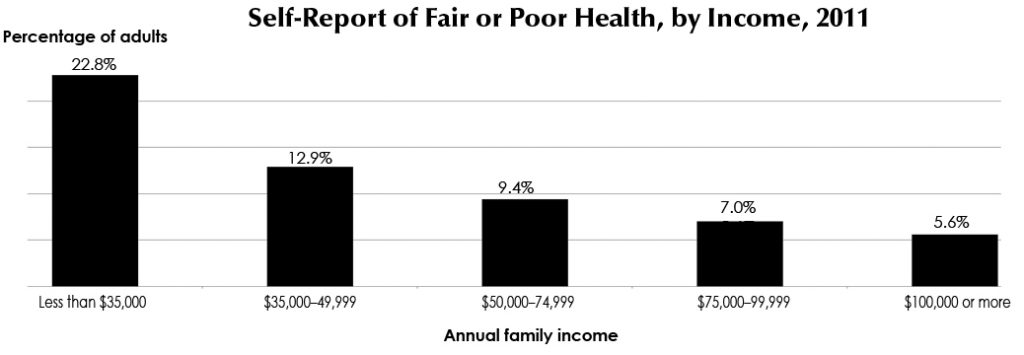Does Medicare for All Advance Socialist Politics?
There is broad agreement on the left and within Democratic Socialists of America that Medicare for All (M4A) would vastly improve the lives of most Americans. It is for this reason that the fight for single-payer healthcare was adopted at DSA’s 2017 convention as our top organizational priority. But some socialists fear, especially now that Bernie Sanders’s Medicare for All Act of 2017 has been endorsed by a significant number of Democratic presidential hopefuls, that this issue has become too tame, that we need to be advancing issues to the left of the Democratic Party agenda. After all, getting someone to sign on to a program that is in the objective self-interest of 95% of the country doesn’t necessarily mean that that person is going to be radicalized to fight for a just society down the line.
If we are to talk about the strategic importance of M4A for socialist politics, we must make an honest assessment of the contemporary power of the left. DSA’s recent growth and that of other leftist organizations is tremendously exciting, but forty years of neoliberalism have isolated us from the mass constituency we need in order to challenge our inept political elites. The gravest danger to DSA is to spend too much time on internal politics, under the mistaken assumption that we are the primary constituency that must be properly organized, to the neglect of externally organizing the working-class majority to demand transformative changes in U.S. society. Without a mass base, socialists are nothing but reading-group fodder.
In a 2014 article in Socialist Register titled “The Crisis of Labour and the Left in the United States,” Mark Dudzic and Adolph Reed, Jr. offered some sage advice as to how we go about building that base:
Broad movement-building requires mobilizing around an agenda of substantively anti-capitalist reforms that directly and militantly assert the priority of social needs over market forces, bourgeois property rights and managerial prerogative in the workplace and production process. Struggles to preserve and expand public institutions and to decommoditize basic human needs like housing, transportation, healthcare and education could begin to address the immediate challenge, which is to create a new popular constituency for a revitalized movement, instead of reorganizing or re-mobilizing an already existing but totally marginalized left.
 This was before the Sanders campaign began, and it turned out that decommodifying reforms such as M4A and Free College for All do in fact have the requisite mass appeal. This popularity has forced establishment Democrats to support M4A, for fear of alienating progressives. Make no mistake, though: without mass pressure to establish a real universal health insurance system, they will abandon or severely water down the program under the influence of their corporate sponsors.
This was before the Sanders campaign began, and it turned out that decommodifying reforms such as M4A and Free College for All do in fact have the requisite mass appeal. This popularity has forced establishment Democrats to support M4A, for fear of alienating progressives. Make no mistake, though: without mass pressure to establish a real universal health insurance system, they will abandon or severely water down the program under the influence of their corporate sponsors.
Although M4A is a Democratic Party issue on paper, socializing part of an industry that accounts for more than one-sixth of U.S. gross domestic product is not something either party of capital is going to tolerate unless they have a mass base to fear and appease. The aim of the Democratic Socialists for Medicare for All campaign is to organize that base and to prepare it to fight for our demands against the corporate elites and the private insurance companies.
By reaching out to people directly through canvassing, educational events, workplace conversations, and other actions that get DSA members talking to non-politically involved, working-class people, we will be connecting DSA directly to what might be the most important and transformative piece of legislation of our era. The faces people associate with M4A will be those of our members, and the names, contact information, and healthcare stories of the people we talk to will be in our databases.
Making these connections is how we’re going to build the base we need to have an independent power that makes politicians pay attention or to establish an independent party in the future. Being connected to a mass base differentiates DSA’s M4A campaign from those of other progressive organizations that are fighting for universal healthcare. While groups like the Progressive Democrats of America wage grassroots lobbying efforts (sitting in at a congressmember’s office, letter-writing campaigns, and so on), DSA is building a base by having face-to-face conversations and connecting with ordinary people about the injustices that affect their everyday lives.
 Because we’re aiming to make personal connections with our base, we need to start with programs that are popular with a broad segment of the working class. Socialists may support a wide range of radical demands, but pushing those to which most people aren’t receptive now is essentially consigning them to fantasy. For too many issues, the left has not yet made a credible case as to how the majority of people are affected. As Daniel Aldana Cohen sadly notes in Public Books’s “The Big Picture: Working-Class Environmentalism,” this is true even for climate change, undoubtedly the most important issue facing humanity today. It is only by building a base of people capable of seeing climate justice as integral to their material existences that we can hope to address this issue.
Because we’re aiming to make personal connections with our base, we need to start with programs that are popular with a broad segment of the working class. Socialists may support a wide range of radical demands, but pushing those to which most people aren’t receptive now is essentially consigning them to fantasy. For too many issues, the left has not yet made a credible case as to how the majority of people are affected. As Daniel Aldana Cohen sadly notes in Public Books’s “The Big Picture: Working-Class Environmentalism,” this is true even for climate change, undoubtedly the most important issue facing humanity today. It is only by building a base of people capable of seeing climate justice as integral to their material existences that we can hope to address this issue.
M4A can be the campaign that speeds up “the inherently extended epoch of revolutionary time” to approximate “the urgency of ecological time,” to quote Sam Gindin in “Building a Mass Socialist Party” (Jacobin, Dec. 16, 2017). We can only do this, however, if we go about carefully linking it to a socialist program. The goal of the M4A campaign is thus not simply to convince people that the program is objectively in their self-interest, which it is, but to get them to recognize the injustices in their lives, to see how capitalism is responsible for them, and to think differently about what they demand from their society. Personal transformations of this nature can only occur if we aim to have high-value conversations with every person we meet and if we stay in touch with people who have a positive response to our program through follow-up phonebanking and emails.
This is not political charity work, where we help out the less fortunate; this is political solidarity work, where DSA members and everyday people connect on an issue of shared interest. When we win M4A, this base – our base – can be engaged to push for the next demand because they see their interests and those of DSA members as aligned.
As with the National Health Service in Britain, M4A could be a touchstone for how working-class people view other social goods such as education, transportation, utilities, and housing. And like Jeremy Corbyn’s Labour Party, DSA can hold up the example of a nationalized healthcare system to heighten class struggle with a very simple message: these things are ours, and we’re going to take them back. ϖ
 Democratic Socialists of America
Democratic Socialists of America